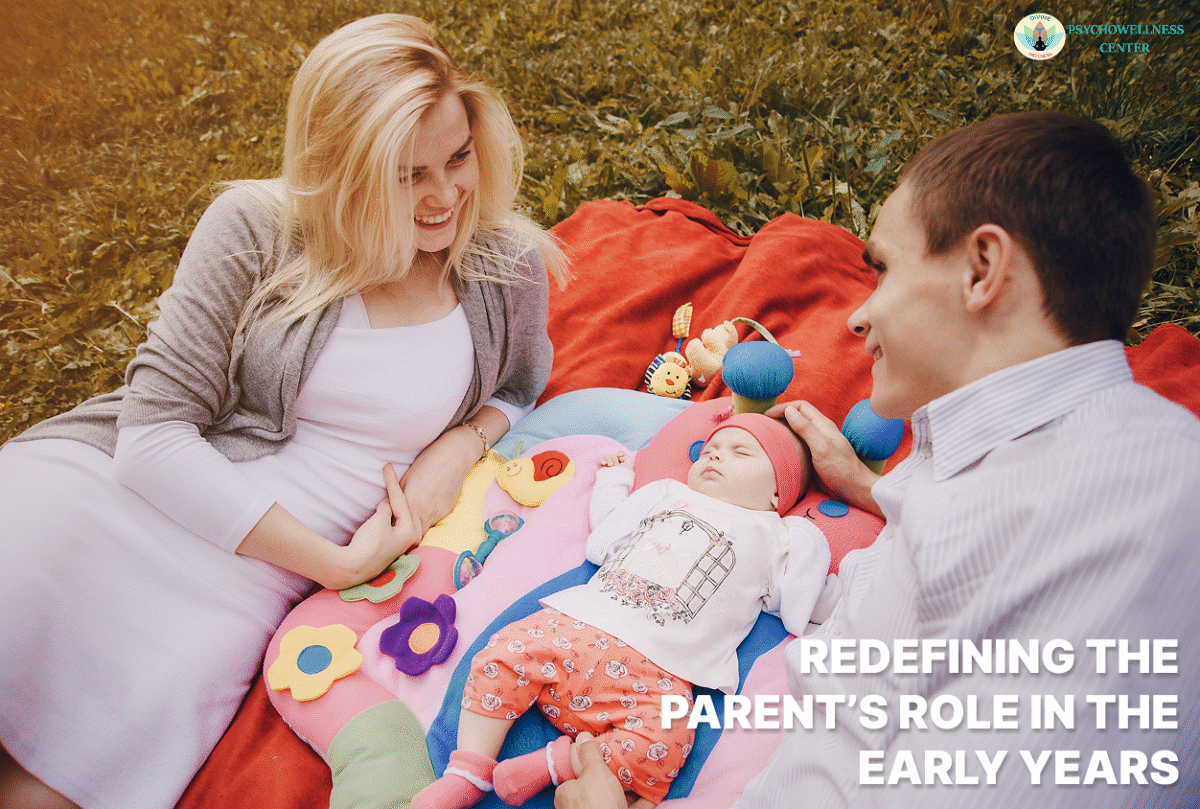Parenting is a deeply personal and evolving journey, but when your child has special needs, it transforms into something even more profound. It becomes a path of resilience, emotional depth, and ongoing discovery. These early years, often filled with therapy sessions, developmental evaluations, and emotional ups and downs, are not a sidetrack—they are your parenting journey in its most powerful form.
As a parent, especially in the early developmental phase from birth to age five, your role is more than caregiving—it’s about advocacy, emotional connection, and becoming a foundation your child can grow upon. Along the way, parents often face not just external challenges, but internal ones too, such as identity crises, relationship difficulties, and the emotional weight of seeing their child struggle with bullying or societal exclusion.
This blog aims to help parents redefine their roles in a more empowered and emotionally intelligent way.
1. From Caregiver to Confident Advocate
Navigating diagnosis, medical jargon, and therapy sessions can feel overwhelming. But you don’t need to be an expert to advocate for your child. Ask questions—even if they make others uncomfortable. Stand firm when systems resist accommodations. Your voice is crucial, and no professional knows your child as intimately as you do. When facing a family problem or systemic pushback, seeking guidance from a counsellor can also support your emotional resilience and decision-making as a parent.
2. Shifting From Standard Norms to Personalised Milestones
Traditional development charts may cause anxiety when your child doesn’t fit the mold. But every child has their own timeline. Celebrate the progress that matters most:
- The first shared smile
- A calm response in a new environment
- Expressive gestures that reveal personality
These moments may not appear in a textbook, but they are powerful markers of growth. This mindset shift fosters self-improvement not only in your child but in you as a parent.
3. Becoming Your Child’s Emotional Translator
Children with special needs may not always express themselves clearly. You become their interpreter—understanding their non-verbal cues, behavioural patterns, and emotional needs. This skill is vital not only for day-to-day interactions but also in helping educators and therapists understand how best to support your child. You’re not just a parent; you’re your child’s voice and emotional bridge. For children facing adjustment disorder or struggling to cope with change, your interpretations and interventions can make all the difference.
4. Supporting Emotional Growth Through Co-Regulation
But instead of protecting them from every challenge, co-regulation teaches them emotional resilience.
- Name their feelings aloud
- Guide them through self-soothing techniques
- Model emotional regulation
This builds long-term coping skills that extend into adulthood and helps them manage their responses to situations like bullying or overstimulation.
5. Embracing Your Own Growth and Vulnerability
Parenting a child with special needs requires you to constantly evolve. Feelings of grief, isolation, or self-doubt are valid. You may also grapple with your own body image, identity crisis, or unresolved family dynamics. Seeking help isn’t weakness—it’s courage. Whether it’s through therapy, peer support, or personal reflection, embracing your growth helps you become more resilient, present, and compassionate.
This journey is also an opportunity to explore time management, set realistic goals, and prioritise self-improvement, so you can show up as your best self for your child.
6. Designing a Safe, Supportive, Sensory-Aware Space
Children with special needs thrive in environments tailored to their emotional and sensory preferences. You become the architect of this space—one that promotes safety, learning, and joy.
- Create calming zones
- Use visual schedules to reduce anxiety
- Offer sensory-friendly toys and materials
This kind of environment supports not just learning but emotional development as well.
7. Building a Circle of Support and Inclusion
Community is not optional—it’s essential. Find those who uplift and understand your journey:
- Other parents on similar paths
- Therapists and teachers who see your child’s potential
- Friends and family who offer support without judgment
Inclusion begins at home and extends outward. Teaching others to see your child through a lens of empathy and possibility is an act of advocacy in itself.
Conclusion
The early years of parenting a child with special needs are not simply about managing diagnoses or following therapy schedules—they are about becoming an intentional, emotionally attuned presence in your child’s life. Redefining your role means shifting from being a passive caregiver to a confident advocate, emotional anchor, and active co-creator of a nurturing environment. It also means confronting your own emotional challenges, from identity crisis and body image issues to relationship difficulties and family problems, with openness and courage.
As you grow alongside your child, setting realistic goals, improving time management, and prioritising self-improvement, you model resilience most powerfully. These foundational years are a time to build connection, trust, and emotional safety—not only for your child, but also for yourself as a developing parent.
For parents and families looking to navigate this transformative journey with professional support, the Psychowellness Center, located in Dwarka Sector-17 and Janakpuri, offers in-person counselling with experienced child and family therapists, counsellors, including some of the best psychologists near me. Additionally, TalktoAngel provides secure and confidential online counselling, making expert guidance accessible no matter where you are.
Both platforms are committed to supporting families in redefining their roles with confidence, compassion, and clarity ensuring every child, and every parent, feels seen, heard, and empowered in these formative years.
Contributed by Dr. RK Suri, Clinical Psychologist, Ms. Drishti Rajore, Counselling Psychologist.
This blog was posted on 29 August 2025
References
Baumrind, D. (1991). The influence of parenting style on adolescent competence and substance use. The Journal of Early Adolescence, 11(1), 56–95. https://doi.org/10.1177/0272431691111004
Neely-Barnes, S. L., Hall, H. R., Roberts, R. J., & Graff, J. C. (2011). Parenting a child with an autism spectrum disorder: Public perceptions and parental conceptualisations. Journal of Family Social Work, 14(3), 208–225. https://doi.org/10.1080/10522158.2011.571539
Shonkoff, J. P., & Phillips, D. A. (Eds.) (2000). From neurons to neighbourhoods: The science of early child development. National Academy Press. https://doi.org/10.17226/9824
https://www.psychowellnesscenter.com/Blog/how-to-improve-the-parent-child-relationship/
https://www.psychowellnesscenter.com/Blog/parental-behaviour-and-child-development/
https://www.psychowellnesscenter.com/Blog/exploring-the-benefits-of-effective-parenting/
https://www.psychowellnesscenter.com/Blog/healthy-tips-for-parents-to-engage-with-children/

